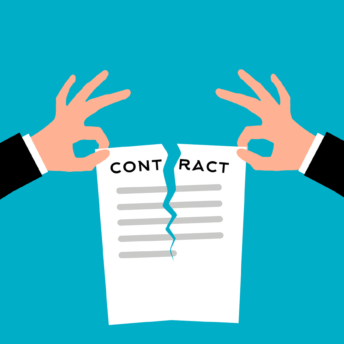Property searches (also known as conveyancing searches) are enquiries made by your solicitor to find out more information about a property you plan to purchase. As part of the conveyancing process, your solicitor will carry out a variety of ‘searches’ with the local authority and other parties. They normally include aspects such as whether planning permission may be granted for a future development that would negatively impact your property, the quality of the ground on which your house is built, or details of common drains and access rights. The searches should be completed and approved before you exchange contracts and legally commit yourself to purchasing the property, as they may highlight planning or structural issues that could either affect the value of the property, or result in additional costs further down the line. In this article, what searches are done when buying a house, we take a look at the mechanism and process involved.
Free Initial Telephone Discussion
For a free initial discussion on how we can help you with the legal aspects of buying or selling your house, get in touch with us today. We will review your situation and keep you regularly updated, discussing progress in a clear and approachable manner. Early expert legal assistance ensures no mistakes are made and also avoids the stress of dealing with these issues on your own. Simply call us on 0345 901 0445 or complete our online enquiry form and a member of the team will get back to you.
Are searches really necessary?
If you are buying with a mortgage, it will be a term of the mortgage offer that searches are carried out and that the results are positive. If something is highlighted in a search result that could affect the value of the property, it will have consequences on your mortgage offer.
If you are buying the property for cash, it is not a legal requirement to have searches carried out. However, it is strongly advised because if you don’t carry out searches when you buy when you come to sell, your buyer’s searches may discover something that could affect the value of the property or in the worst-case scenario, make the house unsellable.
What searches are involved?
There are a number of searches to consider and these include:
Environmental searchesAn environmental search is important as it will establish whether the property you are buying is built on or near contaminated land or water, or an old landfill site. Your mortgage lender may insist that this type of search is carried out before they will offer you a mortgage. The reason this type of search is required is that many properties are built on land which was previously used for industrial purposes, and toxic substances could remain in the ground. If these aren’t uncovered before you take ownership of the property you could find yourself with a home that is impossible to sell later, or even worse is a health hazard. An environmental search should also show whether there is a risk of flooding.
Water and drainage
A water authority search will establish that the sewers, drains and piping are maintained by them. A water and drainage search carried out by your conveyancer will also highlight the proximity of the property to public sewers and whether the property has a sewer running within its boundaries.
Land Registry searches
Your solicitor will need to prove that the property seller is the legal owner of the property you are buying. They do this by checking the ‘title register’ and ‘title plan’ at the Land Registry. These checks cost around £3 each and are legally required for the sale to go ahead.
Local authority searches
Local authority searches look at information held by the local authority involving the property, including prospective planning permission or restrictions. They will also show who is responsible for maintaining roads and paths adjoining the property. Local Authority searches can take from one to six weeks to complete and can cost anything between £70 and £400 depending on which authority your property is located in. A local authority search will also detail any charges owed to the council which in some instances can be substantial.
Chancel repair search
In the past, houses built near to the local church were often obliged to pay for the church’s upkeep. This was known as a chancel repair obligation and some older house in certain parts of the country still have this legal obligation. A chancel repair search is necessary to establish whether you will be liable for the cost of repairs to a parish church. Following a law change in October 2013, the church must now establish and lodge liability with the Land Registry, but in certain circumstances, the church can still insist a property owner is liable for repairs even if the liability hasn’t been registered. A chancel repair search only costs a few pounds and you may opt to take out Chancel repair insurance instead, which typically costs around £30.
Coal mining & brine search
Fortunately, this is a relatively easy search as mines in the UK are well mapped and it is often sold together with a subsidence search. Areas that are typically subject to mining issues include Cornwall and Nottingham. What the search looks for is whether there is a problem with the land the property sits on, for example, have other addresses nearby made claims? If a specific problem has been identified, it may need further reports to identify the extent of the problem and what needs to be done to mitigate the risk, or insure you against it.
How long should the searches take?
Searches usually take two to three weeks to complete, but remember that their results may prompt your solicitor to make further enquiries.
It’s difficult to give a specific timescale for conveyancing searches as the length of time they will take depend on where the property is and which searches need to be conducted, as well as how long external bodies take to produce the required information. Some councils respond very quickly to search requests, while others may take weeks.
Often the best way to speed up the length of time it takes for searches to take place is to keep in regular contact with your solicitor so you can ensure they have put in all the relevant requests, and that they chase them up if there are any delays.
How we can help
We have a proven track-record of helping clients buy and sell their homes no matter the size. We will guide you through all the necessary legal due diligence in a comprehensive and timely manner. We firmly believe that with the right solicitors by your side, the entire process will seem more manageable and far less daunting.
How to Contact our Residential Property Solicitors
It is important for you to be well informed about the issues and obstacles you may face during the transaction. However, expert legal support is crucial in terms of saving you money and ensuring you achieve a positive outcome.
To speak to our Residential Property solicitors today, simply call us on 0345 901 0445, or allow a member of the team to get back to you by filling in our online enquiry form. We are well known across the country and can assist wherever you are based. We also have offices based in Cheshire and London.






Leave a Reply
You must be logged in to post a comment.